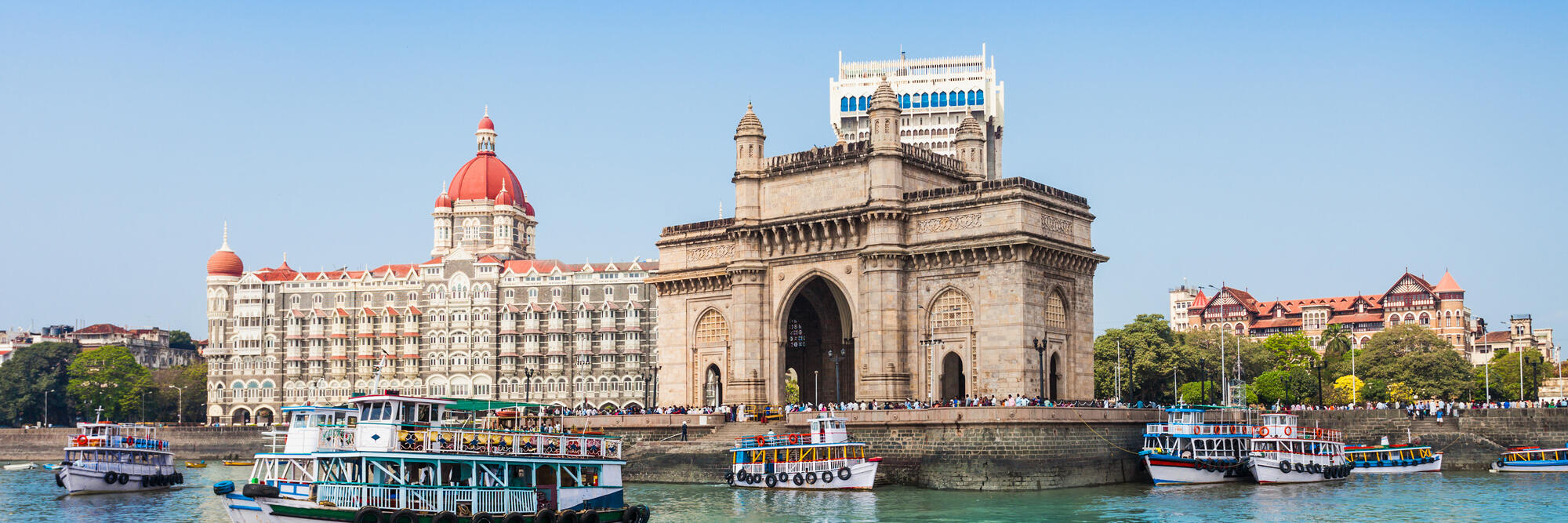Lindsey moved to India as the 'trailing spouse' when her husband got a job in Mumbai. Three years later, despite the cultural adjustments, life has been an adventure, and she does not regret the move.
Read more about India in the Expat Arrivals India country guide , or read more expat experiences in India.
 About Lindsey
About Lindsey
Q: Where are you originally from?
A: England, UK
Q: Where are you living now?
A: Andheri West, Mumbai
Q: How long have you lived in Mumbai?
A: Three years
Q: Did you move to India with a spouse/children?
A: Yes, I came to Mumbai as a ‘trailing spouse’ to husband Mick. I also brought the kids, Hugh, who is now 14, and Polly, who is now 12. Hugh has recently returned to the UK to attend boarding school.
Q: Why did you move to India; what do you do?
A: Mick was offered the position of MD for Synovate India (market research company). Synovate was recently acquired by the French company Ipsos. Mick is now CEO of Ipsos India.
About Mumbai
Q: What do you enjoy most about Mumbai? How’s the quality of life?
A: ‘Quality of life’ in India is very different to that in the UK. Mumbai is dirty and polluted, but there are small islands of absolute opulence open only to wealthy Indians and expats. The luxury hotels and clubs serve fabulous poolside buffets surrounded by immaculate lawns, but just metres away, on the other side of the wall, there are homeless families living on the street. Quality of life back home is fresh air, green fields, and availability of good quality fresh food. Here in Mumbai, it means being chauffeured around in air-conditioned cars, having housemaids and attending fabulous functions. What I like most about Mumbai is the people. There is a can-do attitude, and Mumbaikars are very confident and positive people. They are also very resourceful.
Q: Any negatives? What do you miss most about home?
A: Pollution, rubbish in the streets and rivers. Homelessness and poverty. I miss walking my dog through the Kent countryside.
Q: Is Mumbai safe?
A: I have never witnessed any street violence in three years. I feel very safe going out on my own, even at night. I believe that things are very different in Delhi.
About living in India
Q: Which are the best places/suburbs to live in Mumbai as an expat?
A: Most expats live in Bandra, Juhu or Powai. We used to live in Bandra but decided to move to a new building in Andheri West where you get a lot more for your money. The nicest place to live is South Mumbai, as it has a very different feel from the old city. The architecture is fabulous, and the streets are clean and wide. However, most international schools are in the northern suburbs.
Q: How do you rate the standard of accommodation in Mumbai?
A: Property is expensive in Mumbai, and you don’t necessarily get what you would expect to get just because you are paying a fortune. Sometimes water is only available for an hour a day.
Q: What’s the cost of living in Mumbai compared to home? What is cheap or expensive in particular?
A: Property is more expensive, as are school fees. Imported food is double what you would pay for at home. Dining out can be more expensive or much cheaper than at home, depending on where you go. But like everything in India, there are massive extremes. A tin of imported tomatoes costs the same as paying for 20 people to get into Byculla Zoo.
Q: What are the locals like; do you mix mainly with other expats?
A: Mick is the only foreigner at his place of work, so obviously, he spends most of his time with Indians. We have met and socialised with parents at the school who are mostly Indian, and we have friends who are both Indian and expat.
Q: Was it easy meeting people and making friends in Mumbai?
A: The kids found it very easy to make friends at school. We met other parents, and then I joined Mumbai Connexions, an expat group of about 300 members from all over the world.
About working in Mumbai
Q: Did you have a problem getting a work visa/permit for India?
A: No, but the FRRO can make you jump through hoops. It is preferable to get an agent.
Q: What’s the economic climate like in Mumbai? Is there plenty of work?
A: Business is booming! There are some very powerful families running some of the biggest corporations in India; the Ambanis and the Tatas of today can be compared to the Carnegies and the Rockefellers of late 19th Century America. The Indian workforce is young, energetic and optimistic about the future. India is a market of consistent growth and huge diversity.
Q: How does the work culture in India differ from home?
A: People define themselves by their position. Bookshops groan with Business and Management books. People are working all the time. Blackberries are never switched off!
Q: Did a relocation company help you with your move?
A: There was a relocation agent who hindered more than helped.
Family and children
Q: Did your spouse or partner have problems adjusting to their new home?
A: We all did. When we first arrived, it was difficult to cope with what seemed like constant chaos. The apartment was still being finished when we moved in; we were all sick, and we didn’t know where to buy food. We were having trouble buying a car as we didn’t have the right papers, and everything was such an effort due to the heat and humidity.
Q: Did your children settle in easily?
A: My 12-year-old daughter settled well, but my son found it harder to adjust. He is now 14 and at boarding school in England. He is much happier at school now and enjoys his frequent visits to India. My daughter will be joining him in September 2013.
Q: What are the schools in Mumbai like? Any particular suggestions?
A: My daughter is at Ecole Mondiale, an IB school in Juhu. There are only a handful of non-Indians there, but she enjoys being a bit different. I am impressed with the academic life at Ecole, but the sports are lacking. This is the reason our son, a keen rugby and football player, was not happy at the school. Most expats send their kids to the American School of Bombay. There are a few new international schools popping up around Mumbai. The Oberoi School is recommended.
Q: How would you rate the healthcare in India?
A: Most people I know are having cosmetic operations left, right and centre. There are many excellent hospitals in Mumbai. However, if you were in a road accident and needed an ambulance, it would be very unlikely to reach you in time because of the traffic chaos.
And finally…
Q: Is there any other advice you like to offer new expat arrivals?
A: Take a deep breath and enter into the fray. As much as I hate the filth and the dust, it has been a very exciting adventure for my family. I write about my daily trials and tribulations in my blog – maximumcitymadam.blogspot.com. I am also the editor of an expat magazine, Chalo. I have met hundreds of expats who have come to Mumbai, and not one has told me that they regret the experience. Though most are happy to leave after a couple of years.
~ Interviewed May 2012



